Chemical feed pumps are used in various industries, including water treatment, oil and gas, and chemical processing. These pumps are designed to accurately and reliably inject chemicals into a process stream at a controlled flow rate. In this article, we will discuss the different types of pumps used for chemical feed and their specific applications.
1.Diaphragm Pumps
Diaphragm pumps are positive displacement pumps that use a flexible diaphragm to move fluids. They are often used for chemical feed applications because they can handle a wide range of chemicals, including corrosive and viscous fluids. Diaphragm pumps are also capable of pumping fluids with high solids content and can deliver a consistent flow rate even under varying pressure conditions.
2.Peristaltic Pumps
Peristaltic pumps use a roller or shoe to compress a flexible tube, which creates a vacuum and draws fluid into the tube. As the roller or shoe moves along the tube, it compresses and releases the tube, pushing the fluid forward. Peristaltic pumps are ideal for chemical feed applications because they are self-priming, have no seals or valves that can leak, and can handle corrosive and viscous fluids.
3.Metering Pumps
Metering pumps are designed to accurately and precisely control the flow rate of chemicals into a process stream. These pumps use a positive displacement mechanism, such as a piston or plunger, to deliver a fixed amount of fluid per stroke. Metering pumps are often used in chemical feed applications where precise dosing is critical, such as water treatment, pharmaceuticals, and food processing.
4.Magnetic Drive Pumps
Magnetic drive pumps use a magnetic field to transfer energy from the motor to the impeller, eliminating the need for a mechanical seal. These pumps are often used in chemical feed applications because they are leak-free and can handle corrosive and hazardous fluids. Magnetic drive pumps are also easy to maintain and have a long service life.
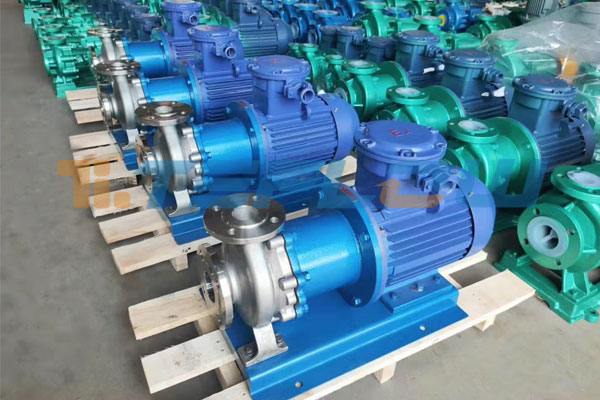
Progressive cavity pumps use a rotating helical screw to move fluids through a stator. The screw and stator form a series of cavities that move the fluid from the suction to the discharge port. Progressive cavity pumps are ideal for chemical feed applications because they can handle a wide range of viscosities, including fluids with high solids content. They also offer a steady flow rate and can handle abrasive and corrosive fluids.
6.Centrifugal Pumps
Centrifugal pumps use a spinning impeller to move fluids. They are often used in chemical feed applications where a large volume of fluid needs to be pumped at a relatively low pressure. Centrifugal pumps can handle a wide range of fluids, including corrosive and abrasive liquids. However, they are not as accurate or precise as metering pumps and are better suited for applications where flow rate and pressure are less critical.
In conclusion, chemical feed pumps are essential for many industries, including water treatment, oil and gas, and chemical processing. The type of pump used for chemical feed depends on the specific application and the properties of the fluids being pumped. Diaphragm pumps, peristaltic pumps, metering pumps, magnetic drive pumps, progressive cavity pumps, and centrifugal pumps are all commonly used for chemical feed applications. Proper selection, installation, and maintenance of chemical feed pumps are crucial for ensuring reliable and accurate dosing of chemicals into a process stream.





 +86 18130251359
+86 18130251359 teflowpumps@tlpumps.com
teflowpumps@tlpumps.com

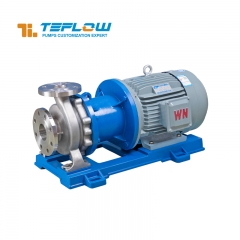
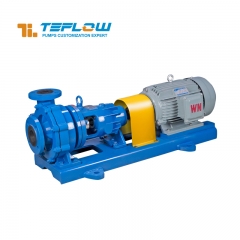
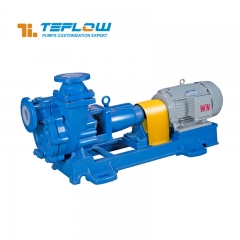
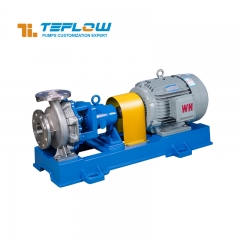








 +86+0563-5093318
+86+0563-5093318
